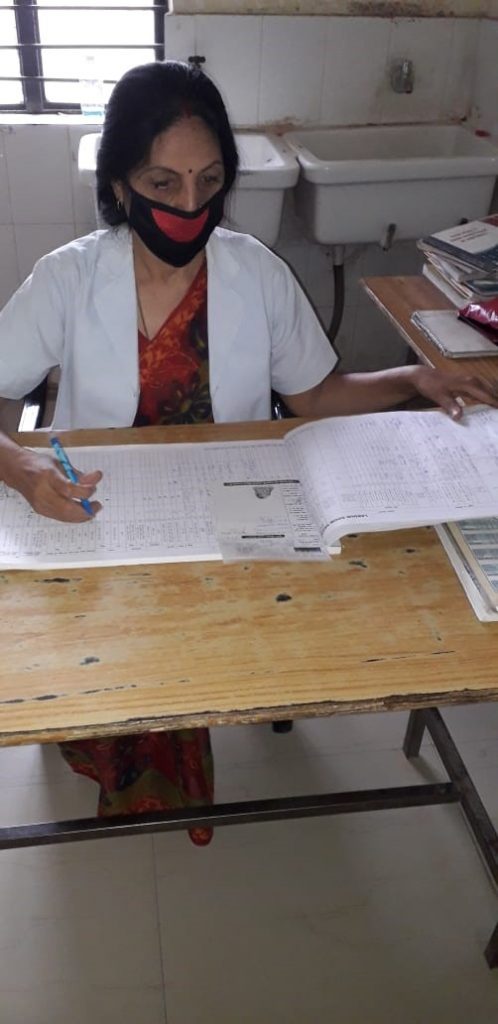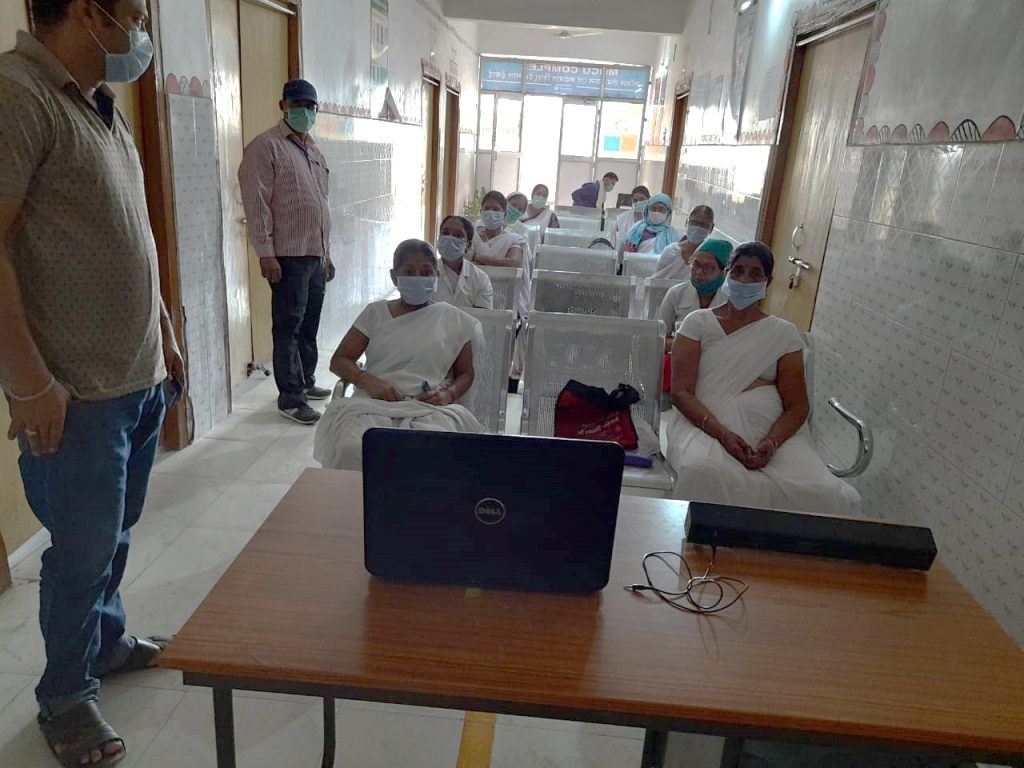Madhubani District, Bihar
With 13 years of experience, auxiliary nurse midwife (ANM) Jayanti has been working at the 30-bedded community health center (CHC) at Khutauna in Madhubani district of Bihar and is not new to managing risks and complications. But when COVID-19 arrived and started spreading fast, she found it hard to ascertain all the precautionary steps that needed to be taken right away to safeguard her facility. Plus, she felt an unprecedented fear that this pandemic could place a heavy burden on essential services like maternal and newborn health (MNH) care services at the CHC, which caters to more than 250,000 people living in nearby communities across 47 villages and conducts around 400 deliveries a month.
So, when Jhpiego’s team, which was already working in five districts in Bihar with support from The David and Lucile Packard Foundation with a mandate to improve quality in family planning (FP) and strengthening postpartum FP services, reached out to Jayanti’s facility for participation in an online COVID-19 training, Jayanti was quick to accept and ensure her attendance. She wanted to be equipped with accurate information and be able to separate myths from facts, not only to save mothers and their newborns, but also to protect everybody else at her facility.

“Our safety, as well as safety of our clients,” she says, reflecting on how both are non-negotiable, when trying to break the chain of the current pandemic. In fact, thankful for the insights gained during this training, Jayanti ensured that she passed on the information to those at her facility who were not able to attend the training with her. Right after the training, the Jayanti and her team got going to ensure safety at their facility and ensure continuation of essential MNH services.
“As a part of general hygiene during COVID-19 we are cleaning the labor room as well as the labor table with hypochlorite solution after every delivery. We are also ensuring the client’s cleanliness by asking the client and the attendants to wash their hands and feet regularly, and after shifting the client to the ward we are making sure that there is only one attendant and that s/he is maintaining 1-meter distance from the client,” says the ANM.
The virtual training included information on facility preparedness in the context of COVID-19, wearing available personal protective equipment (PPE) properly in order to minimize exposure and prevent transmission of a disease. The training also gave information relating to specific care of pregnant and breastfeeding women during an infectious disease spread, an area Jayanti was particularly concerned about. As a frontline health worker, continuously performing the dual role of responding to this outbreak, and providing essential health services to the community members she serves, Jayanti is grateful that she could put her learnings from the training to practice immediately.
“During my labor room duty, a client who had come for delivery had slight fever and was continuously coughing. Suspecting that she might be suffering from COVID-19, I provided her a mask, and took necessary steps to protect myself by wearing PPE before proceeding with the delivery. After the baby was delivered, I ensured that the baby was breastfed. I would have probably not initiated the breastfeeding, had I not taken the training, because I would have thought that virus could spread through mother’s milk. The training on best practices for pregnant women and new mothers during COVID-19 has really helped me to prepare myself in such situations,” says the ANM.
In Bihar, in April 2020, thanks to support from the state government, Bill & Melinda Gates Foundation and The David and Lucile Packard Foundation, COVID-19 awareness trainings were conducted at intervention facilities in all 38 districts, helping even seasoned health care staff, like Jayanti, prepare for this unprecedented pandemic.





